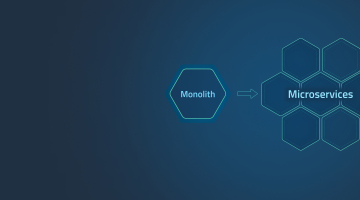

Health insurance quoting software for better lead generation
In a world of numerous dangers, more and more people want to protect their lives and health. Special teams of industry experts deliver various insurance benefits. As long as these firms are businesses, they rely on users, loyalty, and interest. The very first step of the long customer journey is focused on engaging new clients and generating leads for insurance brokers or agencies. For this, a business requires dedicated health insurance quoting software. Further, we will talk about this type of digital tool.
Talking about the actual state of the L&H insurance industry in the United States, we can see that citizens tend to get personal protection more often. According to the report “Health Insurance Coverage: Early Release of Quarterly Estimates From the National Health Interview Survey, January 2022 – March 2023,” more than 25 million Americans of all ages didn’t have health insurance at the beginning of 2023.
Thus, there are enough potential customers for your team. If you want to get them quickly, consider using an efficient health insurance platform.
Types of medicare supplement quoting software and other apps
The following info may be already known to you, but we want to talk about the basics first. Generally, the process of insurance quotes is based on the idea of quotes. A regular quote refers to estimated rates delivered by a potential insurance system. Service providers promote their offers via different channels, including insurance brokers that act as intermediaries and aggregators.
With top-quality health insurance quoting software, clients can compare quotes provided by carriers and purchase policies directly. Insurance agents get commissions, respectively. By installing a reliable and efficient quoting app, you can attract and retain more users. These tools are suitable for different programs, including Medicare and Medicaid.
Let’s look at major software differences based on the development approaches, features, tech basements, and enrollment periods.
Off-the-shelf applications
The first big category includes all the prepackaged apps. These programs are always similar regardless of the client or specific demands because vendors follow the «Create Once Sell Everywhere» principle. Usually, development companies utilize best practices for the insurance industry, e.g. they implement the most demanded features like quote catalogs or comparison tables. Further, vendors deliver the same copies to different customers.
Commercial off-the-shelf software (COTS) has a pretty quick time-to-market, relatively low initial costs, and the most successful functional modules. However, it lacks competitive advantage, customization features, and high profitability because developers often list extra services for extra costs. Be ready to pay more for further upgrades and maintenance. Reengineering and data migration also will cost more.
If you want to get a more customized solution, check out our custom agency management systems for insurance.
Custom applications
On the contrary, custom or bespoke tools are all about uniqueness. Dedicated development teams create each tool from scratch and consider each and every wish of a client. Hence, you are free to list extremely diverse requirements and be sure that the tech partner will review them. If the chosen company has enough skills and capabilities, it will deploy all the desired features. With custom small group health insurance quoting software, you aren’t limited at all.
The advantages are obvious. Custom devs can create everything regardless of the complexity and the company’s goals. You will obtain a unique program that isn’t available to other insurance brokers. With custom applications, it’s simple to avoid redundant features and extra expenses because the software includes only the required modules. Moreover, you can specify what services you will need later (support, training, etc.) and pay for everything at once.
By dealing with dedicated teams, you can get not only quoting apps but also accounting software for insurance brokers.
Other differences
Diving into tech stuff, we also want to reveal more quoting software types. They depend on several features:
- Compliance with regulations. You want to be sure that the chosen software meets the main requirements of local and international regulators. The best example is ACA, that’s active now but can be changed and/or replaced with other official documents later.
- Deployment type. Technically, digital apps can be hosted on your own server or in the cloud. The first type requires enough free space and resources to maintain the software in-house. Instead, cloud tools provide online access without extra expenses.
- Enrollment period. If the local market features different enrollment time boundaries, you want to deliver the most diverse options for clients. Be sure that the software allows applying for quotes during open and special enrollment periods.
- A number of carriers. Apps can list quotes from only one affiliate carrier or compare offers from several companies. As a rule, a multi-carrier system is more engaging for regular clients. Surely, it should have an online enrollment option.
- Other functional modules. Depending on your needs and business goals, you can turn a simple quoting software into a powerful CRM platform, for example. Custom developers can easily add the demanded modules.
As you see, there are a lot of options. Normally, vendors of prepackaged solutions don’t leave space for customization. This means they can offer only cloud-based single-carrier tools with limited enrollment periods and without extra services. Opt for this type if you think that it fits your business objectives. Still, we suggest consulting with custom teams that can design any program and, respectively, boost the software’s efficiency.
Need a fully customized solution? Consider custom insurance policy management software.
Defining the goals of the quoting software
As long as we consider bespoke solutions the best ones for insurers and their clients, it’ll be relevant to review the development process of custom apps. Our experts know the topic perfectly because of numerous delivered insurance solutions, e.g. BenefitNet and FSA.
First and foremost, it’s necessary to understand the problems and challenges of this industry. Why do clients need quotes? What features in catalogs do they want? How can insurance brokers benefit from these products? Which indicators are the most important? Based on our experience, we distinguished two key features of any health insurance quoting software:
- For customers. Deliver quotes with valuable info before asking for personal data.
- For agents. Convert as many visitors as possible to turn them into leads.
A lot of existing solutions require users to fill out long forms with different questions. They ask for personal details before providing real value. Respectively, the majority of site visitors don’t access quotes because of the long and complicated registration process. Agents and brokers lose potential customers while people don’t get what they need.
Our vision is centered around usefulness for both parties. A health insurance platform should be the simplest starting touchpoint in the long marketing cycle. It should attract as many prospects as possible. To reach this result, we try to create user-friendly but informative solutions that deliver relevant data.
Related articles:
Get medical insurance verification software in 4 simple steps
The process of creation and implementation of custom apps
In a nutshell, the development process includes the following stages:
- Consultation. Talk with devs, agree on wishes and capabilities, check the required skills, get market insights and recommendations, and discuss terms and conditions.
- Planning. Continue communicating with analysts and developers to get the final software plan with all the required features, potential changes, and long-term upgrades.
- Designing. Wait until the team makes prototypes and/or an MVP. Deliver a final portion of feedback and, if everything is OK, proceed to the development itself.
- Creation. Review tasks and results regularly to provide timely feedback to devs, ask for necessary changes, and try the finished functions with your team.
- Testing. Ensure everything works correctly by cooperating with dedicated QA engineers, finding bugs, and asking partners to fix them.
- Implementation. Prepare your software and your employees for new apps and new processes, train the team, migrate the data, and launch the software.
- Support. Prolong your cooperation with developers to get regular tech maintenance and user support, install new updates, and re-engineer outdated modules.
Custom developers handle all these steps. Moreover, you can get the final price of the entire process beforehand to see how much everything will cost. Compared to premade solutions, custom software doesn’t feature extra hidden expenses after the launch.
If you’re considering cooperation with external firms, learn more about healthcare software development.
Small-group health insurance quoting software benefits
Now, let’s take some time to talk about the potential advantages of the reviewed applications. In the previous parts, we briefly covered this question. You may know that professional quoting solutions allow insurance agents to convert more website visitors, get more leads, and, respectively, increase revenue. Affiliate insurance carriers also get the same benefit. Simultaneously, clients receive an accurate comparison of relevant quotes.
But what about other advantages? Depending on your tasks and objectives, they can be as follows:
- Client details adjustments. Change quotes, proposals, and other variables for each client in real time. It’s easy to personalize offerings for different site visitors.
- Compatibility with various devices. Access the quoting software from PCs, Macs, smartphones, and tablets without issues.
- Integrated forms. Get enrollments and proposals at your fingertips. Find the forms in a single catalog, customize them, and deliver them to leads directly.
- Multi-carrier quoting. Integrate offerings from several insurance carriers to make the catalog and quote comparison more diverse.
- No paperwork. Get rid of human errors and redundant papers with digital-only solutions. They handle all customer cycle stages.
- Quick proposal builder. Create simple, informative, and personalized proposals with branded design. Send them to clients that explore your site.
Don’t forget that customer applications can include more features and deliver more benefits. It all depends on your requirements and budget.
Unique solutions for insurers we provide
With the rapid evolution of digital channels, our team has introduced a new, unique offering to insurance companies that want to gain a competitive edge.
We develop and implement such digital channels as web portals, mobile apps, and chatbots that serve effective ways of engaging more clients to use insurance products and services online. No calls to the call center are needed — people can buy, pay for, and manage their insurance policies and claims in the mobile app, web portal, or with the help of an AI-powered chatbot.
Within this offering, our CX specialists will discover your current solutions to identify the state of customer experience and the level of customer satisfaction with it. They hold interviews with your real clients and find out what pain points, challenges, and frustrations they have while interacting with your company. These valuable findings help create customer personas and create user journey maps. At the end of the day, you will see how well your business workflows are aligned with customer journeys. And if not as well as you wish, we will offer you the solutions that best fit your business goals.
Want to learn more?
Go to the offering page – Insurance digital channels.
How to create a chatbot for insurance
Custom vs off-the-shelf software
Meet our development team
If you are considering purchasing health insurance quoting software, we strongly recommend getting custom tools. With our team, you can request a program of any size and complexity, including small one-carrier apps for local insurance agents and large CRM-integrated catalogs with dozens of partners for national or even international groups.
Our developers focus on final results and timely delivery. We discuss your wishes, reveal our market research results, and summarize all the costs before the work begins. Thus, you can see how much and for what you will pay initially. The range of services includes all stages, from the first consultation to regular updates.
DICEUS experts guarantee the best results when it comes to quality and delivery. We don’t list hourly rates because each project has its own development time. Instead, we promise to deploy the software right when you need it. Surely, the most urgent projects will come with higher costs, but you will get them on time with each required function.
If you need more professional apps, we can also design life insurance CRM software or even an ERP platform.
FAQ
Last but not least, let’s look at a few important questions. They summarize the article so you can quickly recall key points.
What is a health insurance platform?
It’s a software tool designed for insurance agents and brokers. It includes several functional areas, e.g., insurance quotes, comparison of proposals, online enrollment, etc.
What is a quote in insurance?
It’s a personal rate proposed by a given insurance carrier. With a quote, customers can see the main details of the deal, including prices, terms, and services.
Which software type is the best one?
We recommend opting for custom solutions. They come with the best market advantage and perfect customization. Still, you can buy off-the-shelf software if it suits your needs.
How to create custom health insurance quoting software?
The simplest way is to partner with an experienced development team. Remember to choose a company with relevant skills. As well you can train your in-house IT employees.
How much the development will cost?
Due to the low complexity of traditional quoting apps, you can even find free tools. The price may go up to $30 per month per user. Custom products feature quote-based pricing.
The bottom line
At the end of the day, health insurance quoting software is a viable choice for any insurance agency. Although a lot of carriers offer their native quoting tools, you want to get a personalized system that will be able to compare rates of different providers and feature enough space for further customization/upgrading.
Our company provides for all-in-one development of custom insurance programs. We handle tasks of any difficulty and can implement different functional tools into your quoting product. If needed, we can also design more complicated applications, for instance, CRM or ERP insurance platforms. Intrigued? Then wait no more and get your free consultation.





